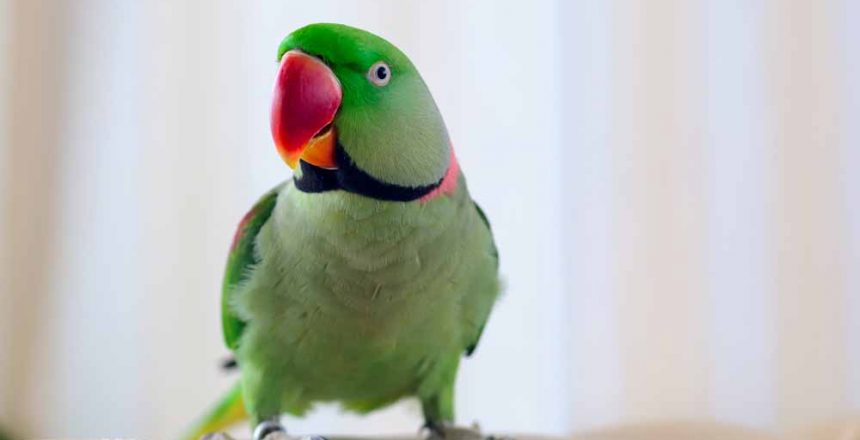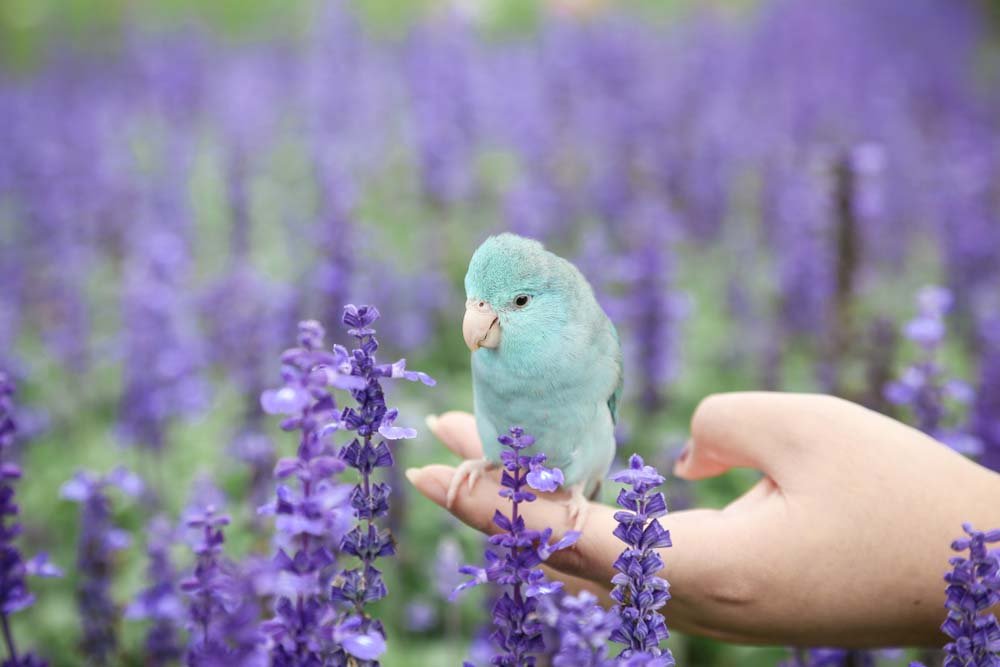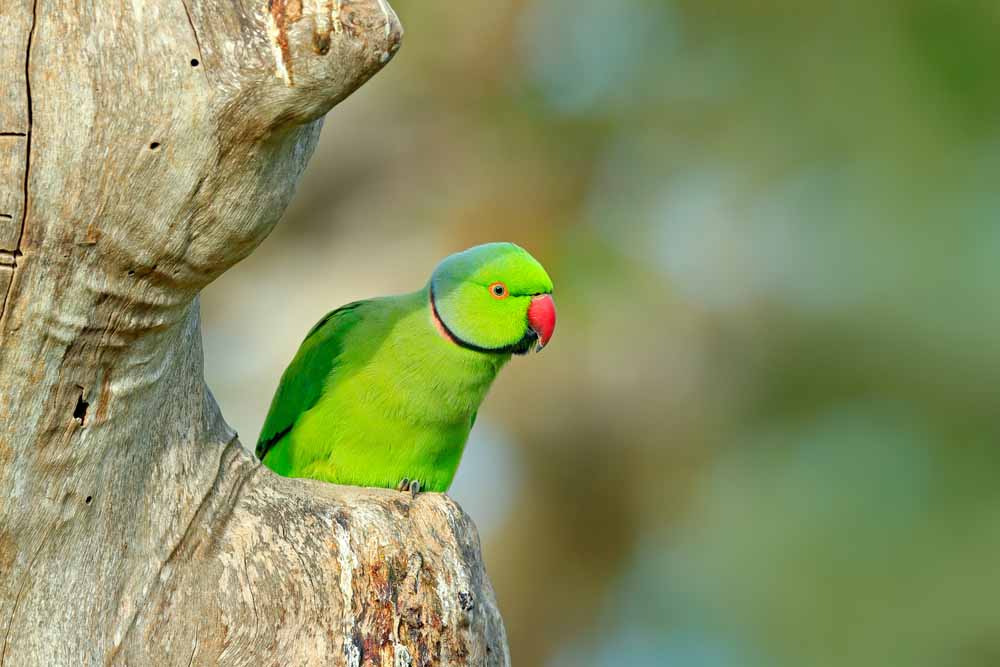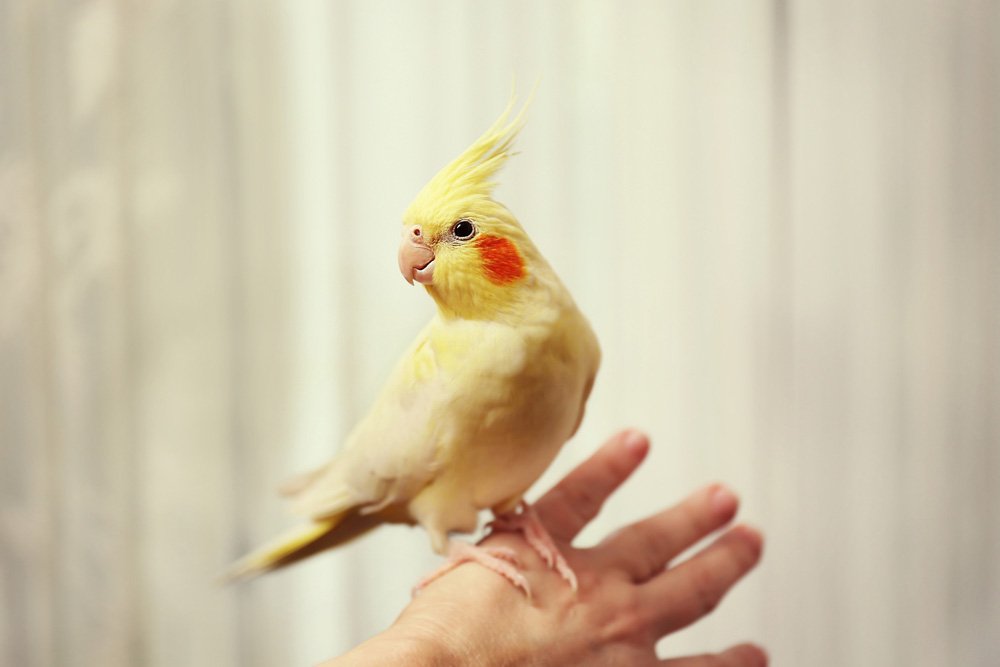In the worldwide, there are two creatures who can speak, human beings and birds. Parrots are considered one of the most famous clever bird species around the world who can talk and this is a really An amazing fact. In the following lines, you will know everything you need about how can you teach your parrot talk.
but above all, we need to raise an important question, do all kinds of parrots speak?
As is known, larger parrots tend to be more able to pronounce words, and this is a list of Very known parrots who can talk:
- African Grey
- Amazon
- Macaw
Not all parrots can speak eventhough they are famous for their speaking abilities
Grey parrot, for example, is known to be a speaker but not on the condition that each African Grey can talk. Sometimes there are some cases when they do not speak at all, in return you may find other birds which are capable to learn quickly and have a great desire to communicate, this is not a scientific fact, but what I had noticed from my experience of teaching some birds belonging to the same species.
Some may utter only a few words. But in general, the vast majority of well-known parrots have the ability to learn different terms with training.
How can I teach my parrot how to speak?
Parrots speak because they are social creatures by nature.
Before you even think of teaching your bird the pronunciation of some words you first make sure to strengthen the relationship between you and your parrots and spend more time with them, that will stimulate them to learn to pronounce more words.
Therefore, you will find that many new owners who buy a talker parrot they get surprised that he no longer speaks when he arrived at his new home, although they had seen him speaks in the pet store or wherever they brought him.
The parrot needs first to feel secure and in harmony with the new owner in the new place so whenever the relationship between you and him is deeper, it will make it easier for you to teach him.
First, choose simple and easy words.
In the beginning, start with 2-4 words: because parrots are selective birds by nature and this will increase the parrot chance to learn one or more of these words. You should focus on the word that interacts your bird more. You will know it when your bird gives you some indicators, for example when you recite the word and he tries to repeat it or interact with you in a certain way when he hears this specific word. This will help you to teach him more and with fewer efforts.
Some words that are easy for the parrot to say :
His name: It is normal that this word is one of the easiest to say because the parrot hears it regularly.
Hi/hello, is the first word that most new parrot owners think about and most parrots find it easy to pronounce.
Teach your parrot to sing a song: is one of the smooth and fun ways to teach him speaking as well because it is mainly related to the feelings of both of you so he tends to be more eager to interact also to encourage him to a large extent to pronounce some words of the song or even all of them.
“If you are happy and you know it ” it is a popular passage among cockatiels owners because cockatiel tends more to whistle and to use a variety of voices.
What is the appropriate time to teach your parrot how to speak?
Like all kind of birds, parrots have active vocal cords mainly in the early morning and at night also the quietness and the calmness of the atmosphere in those periods without being distracted by external factors will help your parrot to focus more on what you are teaching him, that’s why I prefer to teach birds in those times.
but it doesn’t mean that your parrot will not be able to learn out of these times. of course, it would be good if you did it at different moments of the day. especially when you play with him or feeding him.
Why you should not use a tape recorder?
The use of the tape may be convenient for people who do not spend much time with their birds and to be frank if you can not devote at least two hours per day to your bird then taking on a pet bird will not be a good idea for you.
Parrots are emotional pets because of their cleverness that’s why they appreciate the time you spend with and it will hurt them if they stay alone for a long time!
Consider at least 5 seconds between every two words in the recording of a sound clip and try not to leave the section for hours, but only 10 minutes once a day is enough, only if you intend to use this method to teach him; listening to the recording may affect the parrot negatively and make him feel bored also you should know that it is very useful to spend more time with him and try to tell him by your voice the phrase that you would like him to receive before you start the recording.
training a parrot to say a few words is not a difficult thing just 15 minutes in the morning and in the evening will be needed each day.
Some tricks that will help you to teach your parrot more easily
• Link the word with a specific behavior
For example, if you are trying to teach him (Peekaboo) cover your face or try to hide and every time you show him your face say it, make the process of indoctrination fun and stimulate the bird more to interact.
Your bird will utter the words exactly as you say!
Parrots imitate almost the same tone of your voice, but some parrot species are very ingenious in that and will utter exactly as you say the word, whether the voice of a small child or adult. Parrots try to imitate what they hear and that includes the tone of sound as well!
Therefore, it would be better to give a special tone to the word and avoid saying frozen words because this may not make your bird enjoying when hearing it but try to stimulate his desire to interact with you by giving a tone to your words.
It is impressive that some species of parrots like the African grey, for example, can say the same word but in different tones to people around it, that can happen when the parrot is within a family where everyone spends some time with him.
Encourage your bird to speak more!
I have sad news to those who think that parrots speak a lot or throughout the day. If you are one of them, I want to tell you this does not exist!
In fact, parrots are known for their noise more than their words because their system of communication is not “LANGUAGE” keep it in mind. So, if they can speak, it does not mean that they will do it all the time but the words you give to your parrot may not be more than a means for him to interact with you. In a certain behavior, he may use it when he needs something. Parrots tend to use body language rather than repeating “hi” the whole day.
There are some tips that allow you to encourage your parrot to talk more, for example, you can reward him when he says some words by rubbing over his head or feeding him his favorite food. Here you should pay attention to something important, in some cases you may find yourself rewarding him on a daily basis and that is why you need to increase the value of the reward because he may not respond to you as you expect when you give him the “reward”.
In this case, it is very important to note the behavior of your parrot and to observe what things he loves more, for instance, what is the kind of seeds that he prefers to eat? He may like the sunflower seeds or any other type of seeds. When you know what is the closest thing to him you need to isolate it, that will generate him a greate desire to get it and therefore you can make this a positive point for you.
So, every time he says the word reward him by these things he likes, that will encourage your bird more to speak.
My parrot starts to speak!
Now assume that you reached a stage where your bird seemed to speak words or sentences, he becomes bold to do it in front of you or other people. Now, your bird is going to move to an advanced stage and this is the stage of interactive dialogue! For example, you ask him something and he responds you in a certain answer and to teach him this interactive dialogue there are two ways:
The first method is called Reverse Induction:
it means to choose a suitable question for each word that your bird has already learned to pronounce. For example, if your bird already pronounced his name, in this case, the question would be what is your name?
You may wonder how you can do it. Well, it is simple. Each time the parrot says his name gives it a reward but at the same time ask him what is your name?
With time he will begin to associate this question with his name but if you ask him what is his name and he answers with another word don’t reward him, in order to make him know that he has not behaved properly and over time will strengthen the link between the question and the word that mastered by your parrot and will reach the stage when he will immediately answer after hearing the question.
Note: It is important at the beginning to start only with words so that the parrot not get confused.
If you want to move to a higher level you can add other questions but you should be careful not to say similar questions to the first one.
This method takes time, but over time your bird will know that this question fits this word.
The second method:
The basic idea of this method is to stimulate the curiosity of your bird to imitate. Here you will need someone else to help you.
This method is very useful for birds that start yelling and issuing noise when they want to call you.
You should treat your parrot as a child. First, tell the other person whether a friend or family member to stand next to the cage and start calling your name or the word you want the bird to learn (of course you have to hide and your parrot should not see you ) Every time he calls you say yes, and whenever he asks you to come to him try to communicate with him or give him anything.
This will make the parrot connects the word that the other person said and your arrival at him, so when your parrot wants you to be near him will start calling you the same as the person did. Of course every time the parrot do it well you have to reward him.
You can use this method to create an interactive dialogue between you and your pet not only for calling. You can, for example, ask the other person what is your name and he will answer you in the name of your bird and in this point reward him, and ask him again what is your name but this time make him say a wrong answer and then do not reward him. The idea is effective.
It only needs regularity for a period of time and then your bird will begin to communicate with you more effectively.
Q & A
The obvious answer is that the younger parrot is much better than the old one and I can, for instance, compare it to the empty storage medium and the full storage. It is very clear that you can store the information you want in the empty storage, but that does not mean that you can not make an old parrot speaks, I just say that it would be easy if you do that with a younger bird.
Most small parrots begin to talk at the age of 7 months and more, but before they reach the stage of speech. They begin first to mumble and practice and therefore you may notice that your parrot makes some sounds and words incomprehensible, especially at night when the surrounding is calm. We can say that the most important at this stage is to not rush your bird or force him to speak or even try to occupy him with the tape recording all day! This may accomplish negative effects.
A parrot can master a new word from three to six months, but that does not mean it will not be done in less time or even longer.
There are those who said that male parrots have the largest talkability, while others saw the opposite. You may find that females of some parrot species are not known for their speaking abilities such as the Budgie, Cockatiel and ringneck parrot…but always there are exceptions.



